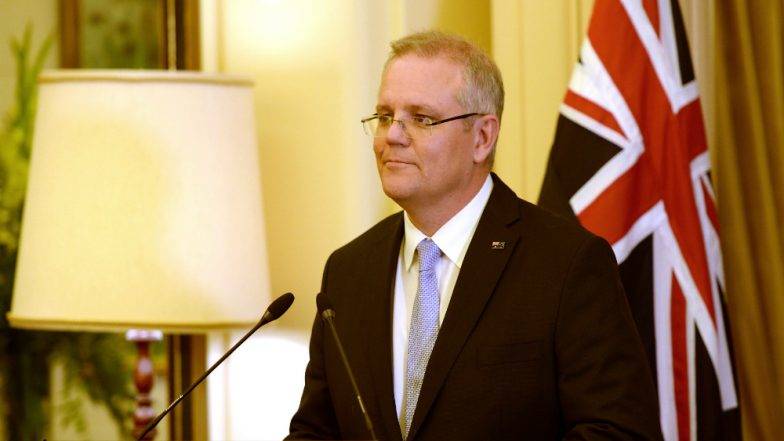Canberra: Members of newly-appointed Australian prime Minister Scott Morrison’s cabinet were sworn in Tuesday after an internal dispute of the ruling Liberal Party that led to a change in its leadership and the head of the government.
The ceremony took place in the presence of Morrison before Governor-General Peter Cosgrove, the representative of Queen Elizabeth II, Australia’s Head of State, reports Efe news.
Morrison and Treasurer Josh Frydenberg already took office August 24, a few hours after being elected as leader and deputy leader of the Liberal Party in a vote that ended the leadership and government of former Prime Minister Malcolm Turnbull.
Home Affairs Minister Peter Dutton was sworn in Monday.
Dutton, who tried to unseat Turnbull, was re-appointed as home affairs minister, a post he previously held during the Turnbull administration, but without the portfolios of Immigration, Citizenship and Multicultural Affairs, which were taken over by David Coleman.
Other members of the new Cabinet include Marise Payne, who left her post as Defence Minister to take the Foreign Affairs portfolio in the new cabinet.
Christopher Pyne will replace Payne in defence, while Steve Ciobo will become the new Defence Industry Minister and leave his trade portfolio for Simon Birmingham.
The Ministry of Energy and Environment will be divided in two different portfolios, with Angus Taylor, known for his opposition to renewable energies, assuming the first and Melissa Price taking the latter.
Dan Tehan will become the new education minister while Mathias Cormann remains in charge of Finance in the new conservative-leaning cabinet with numerous Dutton allies.
Former Prime Minister Tony Abbott, considered the main figure fomenting the party opposition against Turnbull, however, did not receive any promotions but it is possible that he will be appointed as a special envoy for Indigenous Affairs.
Turnbull, who took office in 2015 after snatching the seat from Abbott in a similar party dispute, announced that he will leave the parliament this week after being cut off from the government, which was seen as very inclined to the left by the more conservative section of the Liberal Party.
Australia will hold a general election in 2019.
Internal power struggles and leadership changes have become frequent in Australia for nearly a decade, both during the governments of the Liberal-National coalition and the Labour Party.
Not a single Australian Prime Minister has managed to complete a full term since 2007.
IANS
